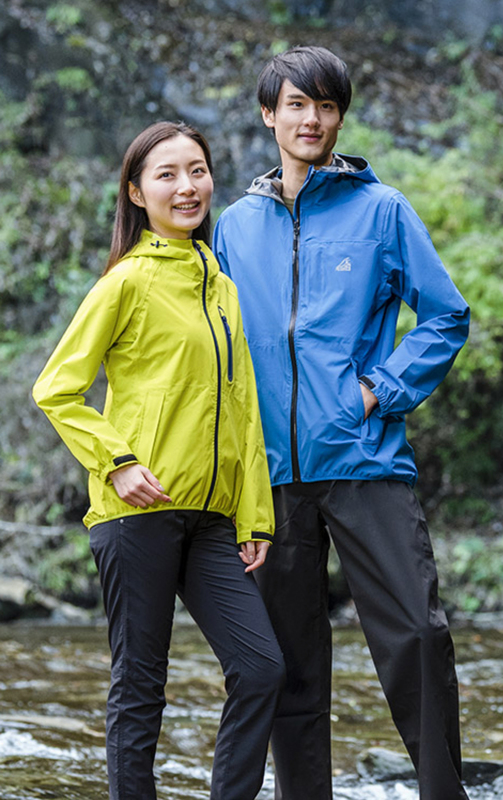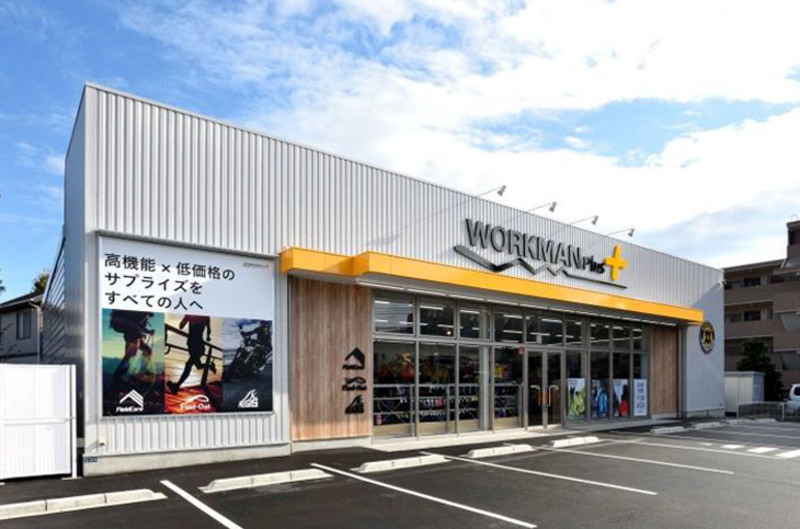
With the Tokyo Olympic and Paralympic Games less than a year away, workman's clothes meant for construction sites and other blue-collar workplaces are enjoying a boom in sales. Profits are climbing for all the major work clothes makers, but the industry's top performer -- Isesaki, Gunma Prefecture-based Workman Co. -- is seeing unsually high sales.
Workman has launched a big expansion with its Workman Plus project, which sells Workman clothes that people can don as casual wear. The first store in the project was opened last September by the company and the LaLaport Tachikawa Tachihi shopping complex in Tachikawa, western Tokyo, and its reputation appears to have spread among young consumers by word of mouth.
A second Workman Plus store was opened last November in Nakanoshima in Tama Ward, Kawasaki. There were long lines of people outside the shop in its first days, and even now, it's always crowded inside.

Most of the customers are men and women in their 20s and 30s. They appear to be drawn partly by the highly affordable prices: As of November last year, particularly fast-selling items included danpan, or stretch pants with a boa liner (2,900 yen), and a waterproof and windproof jacket (3,900 yen).
Workman Plus also prioritizes functionality, as its garments are basically work clothes. Some of the items are essential to wearers' safety, so half-baked functionality will not do.
Buoyed by its success in Tachikawa and Nakanoshima, Workman has gradually been opening more Workman Plus stores. As of the end of August, there were 22 across Japan.
The company said it intends to convert some of its existing Workman stores into Workman Plus outlets, and open Workman Plus sections inside some Workman stores. The number of such stores is set to total 167 nationwide at the end of the business year in March.
At that point, the company's annual sales are expected to reach 100 billion yen with about 900 stores overall, with 20 percent of those sales likely to come from Workman Plus.
It seems to me that people who buy Workman Plus clothes are newcomers to fashion, not long-time devotees. Of course, some are blue-collar workers, but I imagine many are people in non-regular employment who are temperamentally similar to blue-collar workers. They are also probably rebellious types -- to be clear, I refer to mild rebellion, not people who have criminal records or are violent in nature.
I have a feeling that the brand has been a revelation to young people who are dissatisfied with the dull-looking simple clothes sold at Uniqlo or Muji, and are looking for casual wear with a message. The Workman Plus slogan is: "A new standard in function and price. Unbeaten by wind, pursues movement, resistant to rain" -- which I think can be interpreted as: "Can last against society's absurdities, pursues happiness, strong against adversity."
Those are the feelings, I suspect, of many of the young people wearing Workman Plus' 2,900 yen jacket. Otherwise, I can't understand how, despite the slump in the apparel industry, Workman Plus has achieved sales of over 20 billion yen in less than 18 months.
Miura is the editor at large of WWD Japan.
Read more from The Japan News at https://japannews.yomiuri.co.jp/







